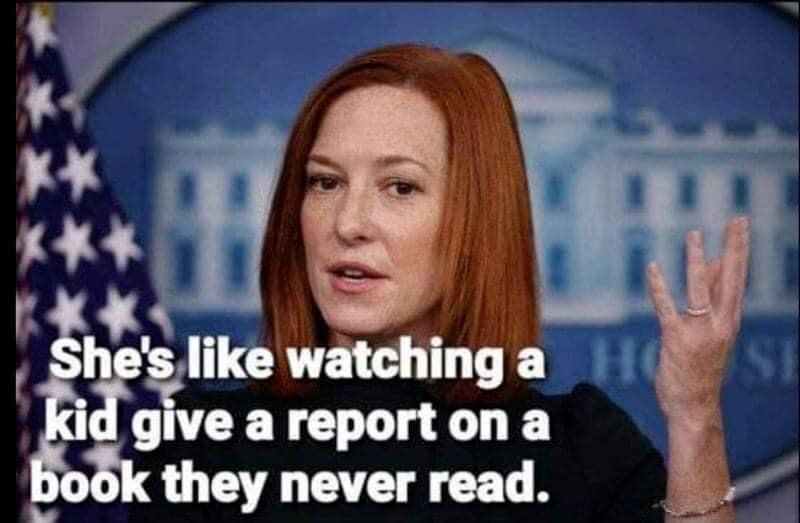The Fourth Estate Is Broken: How Journalism Abandoned the People and Became a Tool of the Left
From Clinton’s Lies to Today’s Bias, the Media No Longer Holds Power to Account — It Protects It

The Collapse of Trust in Media
Once considered pillars of democracy, mainstream news outlets now face historic distrust. Gallup polls show just 31% of Americans trust the media to report accurately—down from more than two-thirds in the 1970s.
Notably, only 12% of Republicans and 27% of independents express trust in the media, even among Democrats trust has dropped to 54%.
This collapse in credibility underscores a profound shift: news institutions are no longer viewed as neutral arbiters, but as ideological echo chambers.
The Turning Point: Clinton–Lewinsky and Media Indulgence
When President Bill Clinton failed to disclose his affair with Monica Lewinsky, much of the media responded not with scrutiny, but with cover-up. As early as 1998, studies showed that certain major news outlets adopted investigator narratives, leapt into speculation, and failed to demand accountability from powerful figures.
Rather than doggedly pursuing accountability, the press treated the saga like a ratings opportunity—feeding a “media feeding frenzy” that prioritized drama over truth.
Even more troubling: Clinton’s approval ratings spiked during the scandal, partially due to media framing that cast impeachment as partisan warfare rather than a moral reckoning.
In effect, rather than checking wrongful behavior, the media helped normalize elite misconduct.
Partisan Programming in the Newsroom
Today’s press landscape looks markedly different: ideological alignment, not objectivity, drives coverage. As Uri Berliner—a longtime NPR editor—observed, of 660 newsroom journalists, 87 were registered Democrats and zero Republicans.
Stories such as the Hunter Biden laptop scandal, lab-leak COVID origin theories, and criticisms of progressive policies were dismissed for aligning with conservative views—not evaluated on merit.
Meanwhile, coverage of President Trump was relentlessly negative, sometimes veering into outright misreporting—like ABC’s false claim that Trump was “convicted of rape,” later settled with a $15 million defamation payment.
This isn’t journalism—it’s curated messaging with partisan resonance.
Crises of Integrity and Independence
Historically, American journalism prided itself on neutrality. Now, those standards are often sidelined. The rise of defamation suits, ethical missteps, and mass layoffs reflects deeper dysfunction.
Gigantic media institutions like The Washington Post and The New York Times have lost tens of millions annually and vast audiences—signaling both public rejection and failing business models New York Post.
Journalists like Bari Weiss, Michael Shellenberger, and Uri Berliner have departed corporate newsrooms to spearhead independent Substack platforms—offering unfiltered reporting unbound by institutional biases.
Media Ownership: A Rigged Information Pipeline?
One of the most overlooked threats to a functioning Fourth Estate is media consolidation. When most major news outlets are owned by just a handful of billionaires or massive conglomerates—like Disney, Comcast, or Jeff Bezos (The Washington Post)—editorial decisions can subtly or overtly reflect ownership interests. Just six corporations now control around 90% of what Americans see, read, and hear, including Disney, News Corp, ViacomCBS, and AT&T.
Jeff Bezos owns The Washington Post, billionaire Patrick Soon-Shiong owns The Los Angeles Times, and Michael Bloomberg controls Bloomberg News. While these moguls may not dictate headlines directly, editorial tone rarely strays far from their ideological or financial agendas. This level of consolidation narrows the range of viewpoints, drowns out independent journalism, and fosters an echo chamber that reinforces elite priorities. The result isn’t a truly free press—it’s curated consensus. And that’s a dangerous development for any democracy.
Why It Matters for the Republic
The press is not a cheerleader or defender—it’s supposed to be a check on power. When mainstream sources cover favored politicians lightly and hammer opponents relentlessly, the balance of information tilts dangerously.
Unequal scrutiny undermines democratic accountability—and deepens partisan division. Citizens deserve equal application of journalistic rigor, not curated political narratives.
Fixing the Fourth Estate
Restoring journalistic integrity demands:
True ideological diversity in newsrooms—people of differing beliefs, educational backgrounds, and life experiences.
Accountability for mistakes, including defamation and editorial failures.
Equal scrutiny across party lines—no sacred cows allowed.
Transparency and fact-checking standards as the norm, not excuses for negligence.
Only then will the press reclaim its role as “guardian of the people,” not guardian of favoured power.
Conclusion
The Fourth Estate has reversed course—from critic to champion—instead of serving the public. The Clintons were protected, big media was complicit, and modern journalism rewards partisanship over truth.
We the people deserve better. And until journalists rediscover their commitment to accountability—regardless of political affiliation—democracy itself remains at risk.
References
References
Bagdikian, B. H. (2004). The new media monopoly. Beacon Press.
Berliner, U. (2024). Why I exited NPR: On liberal media monoculture. The Free Press. https://www.thefp.com
Bloomberg L.P. (n.d.). Company overview. https://www.bloomberg.com/company/
Committee of Concerned Journalists. (1998). Analysis of press coverage: Lewinsky saga. https://ccj.org
Gallup. (2024). Americans’ trust in media collapses to historic low. The New Yorker. https://www.newyorker.com
Herman, E. S., & Chomsky, N. (2002). Manufacturing consent: The political economy of the mass media (2nd ed.). Pantheon Books.
Los Angeles Times. (2018, June 18). Patrick Soon-Shiong completes purchase of Los Angeles Times. https://www.latimes.com/business/la-fi-soon-shiong-buys-la-times-20180618-story.html
McChesney, R. W. (2015). Rich media, poor democracy: Communication politics in dubious times. The New Press.
New York Post. (2024). Media's decline amid trust crisis and legal fallout. New York Post. https://nypost.com
Sabato, L. (1998). Feeding frenzy: Attack journalism and American politics. Free Press.
The Washington Post. (2013, August 5). Jeff Bezos buys Washington Post for $250 million. https://www.washingtonpost.com/lifestyle/style/jeff-bezos-buys-washington-post/2013/08/05/
Disclaimer:
The views expressed in this post are opinions of the author for educational and commentary purposes only. They are not statements of fact about any individual or organization, and should not be construed as legal, medical, or financial advice. References to public figures and institutions are based on publicly available sources cited in the article. Any resemblance beyond these references is coincidental.











